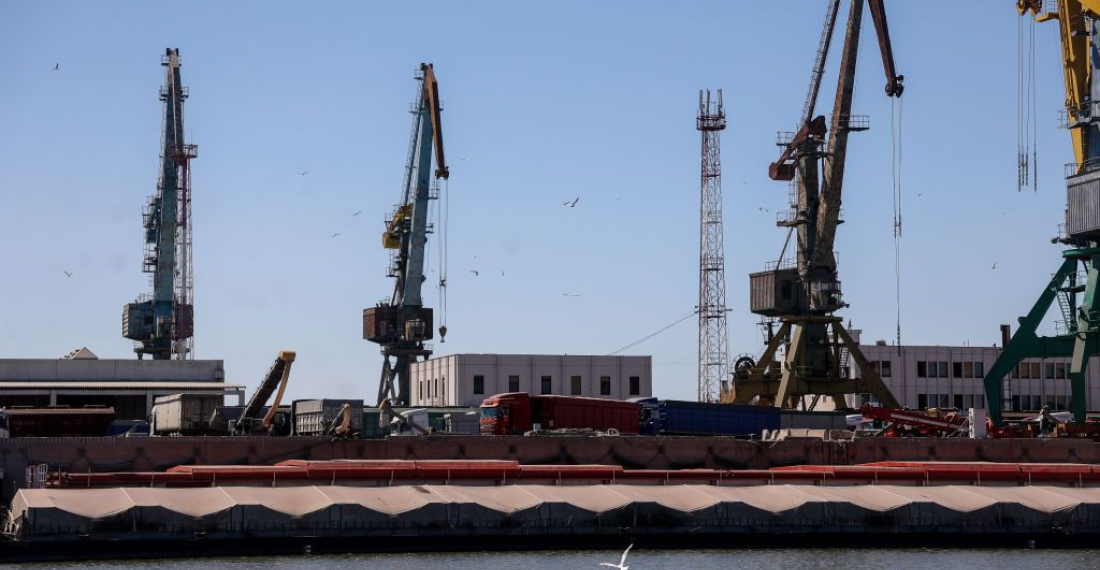On the night of Monday (24 July), Russia launched a wave of drone strikes on Ukrainian grain silos at the Danube river ports of Izmail and Reni, located only 200m from the Ukraine's border with NATO member state Romania.
The airstrikes injured six people and damaged grain storage units. Ukraine's Southern Military Command said they shot down three drones out of a total of 15 launched at the facility.
"I strongly condemn the recent Russian attacks against the Ukrainian civilian infrastructure on the Danube, very close to Romania," Romanian President Klaus Iohannis said on Twitter. "This recent escalation poses serious risks to the security in the Black Sea."
The overnight strikes followed several days of Russian attacks on Ukrainian port and grain infrastructure in the southern city of Odesa after Russia announced its withdrawal from the Black Sea Grain Initiative on 17 July.
In the initiative, originally brokered by Turkey and the UN in July 2022, Russia agreed not to target Ukraine's port and grain infrastructure during its ongoing full-scale invasion of the country to avoid a global surge in food prices.






